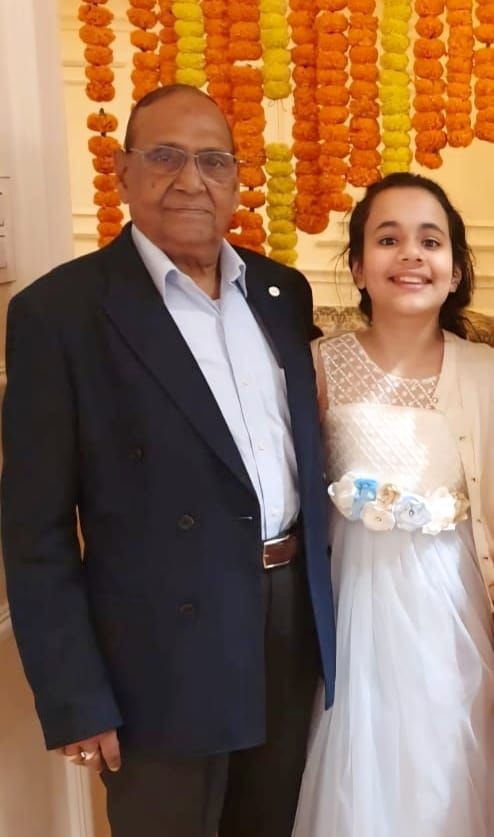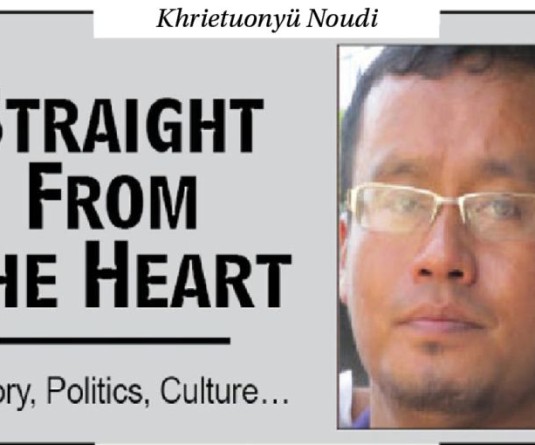
Srishti Bhatia
For 72-year-old Rehena Sarin, her world has consisted of her high-rise flat in Noida and endless silences, ever since her husband passed away fifteen years ago. The same is true for a 70-year-old retired widower in Delhi, who spends his time waiting for meals and is rarely spoken to, despite living with his son. They are not alone - they are just two among the millions of Indian seniors suffering silently from the erasure of social connection and emotional neglect.
Today, these millions of elderly Indians face a quiet but overwhelming crisis. Over 55.4% feel isolated - not just physically, but emotionally - like they don’t even belong in their own homes. As one elder heartbreakingly shared, “Nobody is bothered whether we eat or not.” Many even have to carry the weight of feeling like a burden. This emotional toll is intense, with over 1 in every 5 elders suffering from depression, made worse by the ever-shrinking time and attention they receive from their loved ones. “All are busy at home,” one elderly woman said gently. “I have to adjust to their schedule and their convenience. I had a fall two months back, and nowadays, I spend most of my time in my courtyard. All are busy in their lives.” What they truly long for is not just assistance with medication or daily tasks, but companionship. Without that, they may spiral into worse mental and physical health issues, from anxiety to dementia. And although so many elders need care, support remains out of reach, leaving them to suffer silently behind closed doors.
And this crisis is only going to get worse – because this is not a problem in the far-off future. India is ageing - and fast. In about three decades, we will have more elderly people (60+) than the current population of the United States (330 million). Underscoring this, research from the Journal of Aging and Social Policy indicates that from 2000 to 2050, the elderly population aged between 60 to 80 years is expected to increase by 326%, and the number of people over eighty is projected to rise by 700%, compared to a 55% increase in the country’s overall population. And yet, as this demographic expands, the systems meant to support them remain frighteningly underprepared.
So, what are the systems there to support them in the first place? Geriatric (elder) care supports the full experience of ageing, addressing both the emotional and medical needs of the elderly. Unlike general healthcare, it considers the more complex realities of ageing, such as slower recovery and heightened vulnerability. This is where holistic care comes in - an approach that not only focuses on physical well-being, but also on emotional connection and dignity. Within this broad type of care, two dominant models of care emerge: kin-based and institution-based, neither of which fully address the diverse needs of India’s elderly population; both have distinct advantages, but also serious limitations.
Kin-based (family are the primary caregiver) care allows elderly individuals to remain in familiar environments, surrounded by family and routines they recognise. It is culturally rooted and often the preferred option for many in India. It is supported by phrases like "Pitru Devo Bhava" (“Revere your father as god”), and is often the only viable option for families who cannot afford formal care. Strong kin networks can also promote mental well-being and dignity. However, this model is under strain. Urban migration and nuclear families make caregiving harder. Many elderly people report feeling like a burden, receiving inconsistent or inadequate support due to overworked, untrained family members, such as a retired government servant in Delhi, who is regularly neglected by his daughter-in-law, as reported by HelpAge India. His opinions are disregarded, and he is rarely spoken to, showing the growing trend of elderly individuals being cruelly sidelined in nuclear families.
While family care has its struggles, institutional care (care in formal places, like old-age homes), in contrast, provides structure, trained staff, and access to services, from basic health support to leisure activities. It is also the light in the dark for many elderly who are abandoned or who have no family left to care for them. For some, old age homes can mean newfound companionship, happiness, and stability. But many facilities are overcrowded, underfunded, and emotionally cold, often disregarding elders. Over 35% of elders in Karnataka institutions have reported abuse, especially verbal, showing that even professional settings fail to provide the dignity seniors deserve. Residents, such as Ms. Sharma, regularly report that they are talked down to and criticised, causing significant distress. The results are clear: when care becomes impersonal, it can erode autonomy and increase isolation for the elderly.
Ultimately, despite their differences, both systems suffer from the same gap: they lack a complete, sustainable way to honour both the emotional and medical needs of ageing Indians. These limitations point to one truth: neither kin-based and institutional care can support India’s rapidly ageing population on its own. If both these models don’t work, then how are we going to care for our elderly, especially when the numbers are going to increase exponentially?
The problem is not in what these two models offer, but rather in what they fail to offer.
Perhaps then, we need a model which will provide a corrective.
I would like to propose an integrated care model that combines the best of both models – the emotional intimacy of family care with the structure and expertise of formal systems, to facilitate a holistic solution to elderly care.
How does this model work? This integrated care model wouldhave these following five functions:
1. Train family caregivers through short-term, government-subsidised programs at local health centres. These cover medication management, dementia support, fall prevention, mental health, and essential skills like empathy, boundaries, and respectful communication.
2. Introduce mobile-based telecare services to help caregivers, especially in rural areas, consult specialists, manage medication schedules, and access mental health resources remotely.
3. Deploy community health workers for weekly home visits, offering medical checkups, emotional support, and ensuring proper caregiving standards are maintained.
4. Set up community day-care centres where elders can meet peers, engage in safe activities, and receive light care while their families are at work.
5. Create helplines and counselling services for both elders and caregivers to reduce isolation, prevent burnout, and offer timely emotional support.
These ideas are not as far-off as you may think. Organisations like the Nightingale's Medical Trust in Bengaluru have been running elder daycare centres that blend clinical care with emotional support since 1998. In Kerala, ASHA (Accredited Social Health Activist) workers have been providing referral support to the elderly since 2005.
Studies have already shown results for this approach. Research from the Journal of Global Health Reports showed that training family caregivers in Kolkata significantly improved physical recovery and emotional outcomes for elderly patients recovering post-surgery. Similarly, further studies have found that even basic caregiver training reduced hospital readmission rates among seniors with chronic illnesses.
In short, we cannot afford to let our ageing population fall through the cracks; to let people like Rehena continue sitting in silence, hoping that they are remembered. We need to restore connection, respect, and purpose to those who served our country in their prime. This hybrid, home-based model offers a humane, realistic, and scalable path. With just a few targeted solutions, we can ensure that our elders are seen and heard.
Srishti Bhatia is a 14-year-old student entering Grade 10 at Lancers International School, Gurugram.She wrote this article as part of the Ashoka Horizons Research Writing Programme that she attended this summer.She was inspired to explore geriatric care after witnessing her grandfather’s stage four cancer journey and the care challenges he faced.




